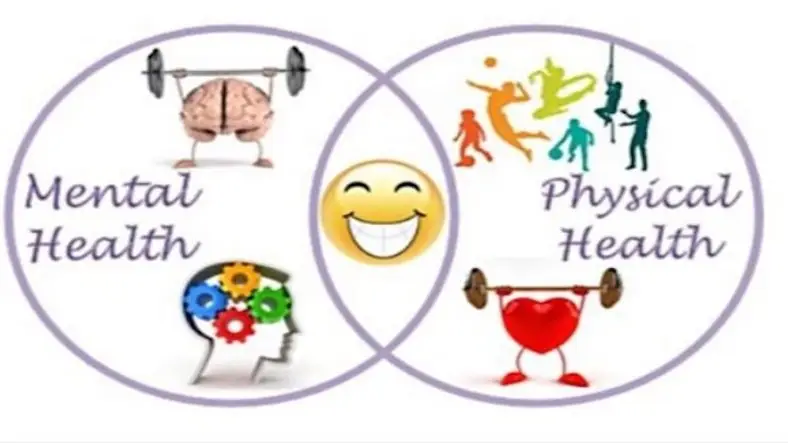When we talk about health, many people think only about the body. But real health is much more than that. Our mental wellbeing and physical wellbeing are deeply connected, and one can affect the other in many ways. When the mind suffers, the body reacts. When the body is weak, the mind feels the impact too.
In today’s fast-paced world, understanding this connection is more important than ever. Stress, anxiety, poor sleep, unhealthy eating, lack of exercise and loneliness are becoming common problems for many people. The good news is that improving one area of your life can bring positive changes to the other.
What Is the Mind–Body Connection?
The mind–body connection means that your thoughts, emotions and mental state can influence your physical health, and your physical health can influence your mental state.
For example:
- When you are stressed or anxious, you may get headaches, stomach pain, back pain or disturbed sleep.
- When you exercise regularly or eat healthy food, you may feel happier, calmer and more confident.
This two-way relationship is strong and backed by scientific studies.
How Mental Health Affects Physical Health
1. Stress and the Body
Stress is not just a feeling—it triggers actual physical reactions in your body. When you are stressed, your brain releases hormones like cortisol and adrenaline. These are helpful for short-term danger, but harmful when they stay high for long periods.
Long-term stress can cause:
- High blood pressure
- Weight gain or loss
- Sleep problems
- Weakened immune system
- Digestive issues
- Muscle tension and headaches
- Increased risk of heart disease
Even common problems like hair fall, acne and fatigue can be linked to unmanaged stress.
2. Anxiety and Depression Affecting the Body
Mental health issues like anxiety and depression can also show up as physical symptoms.
Physical signs of anxiety or depression include:
- Body pain
- Gastrointestinal issues
- Lack of energy
- Slow healing
- Loss of appetite or overeating
- Lower motivation for exercise or work
When people do not feel mentally strong, they often lose interest in self-care, which further affects physical wellbeing.
How Physical Health Affects Mental Health
1. Exercise Is a Natural Mood Booster
Regular exercise is one of the most powerful tools for mental wellbeing. Even 20–30 minutes of walking can make a big difference.
Benefits of exercise for mental health:
- Releases endorphins (feel-good hormones)
- Reduces symptoms of anxiety and depression
- Improves sleep quality
- Boosts confidence
- Helps clear the mind and reduce stress
- Improves memory and concentration
You don’t need a gym membership. Simple activities like walking, cycling, yoga, skipping or playing a sport also count.
2. Nutrition and the Mind
The food you eat affects your brain function. Poor diet can lead to irritability, low mood and low energy.
Foods that support good mental health:
- Green leafy vegetables
- Whole grains
- Fruits
- Nuts and seeds
- Lean protein (fish, chicken, eggs, pulses)
- Healthy fats (olive oil, avocados)
Foods that harm mental health:
- Sugary foods
- Fast foods
- Processed snacks
- Excess caffeine
- Alcohol
Eating balanced meals keeps your brain healthy and stable.
3. Sleep and Overall Wellbeing
Sleep is one of the most important factors for both mental and physical health. Lack of sleep affects nearly every part of your body.
Poor sleep leads to:
- Increased stress
- Irritability
- Poor focus
- Anxiety
- Depression
- Low immunity
- Weight gain
Good sleep hygiene practices include:
- Sleeping at the same time daily
- Avoiding screens before sleep
- Keeping your room dark and cool
- Reducing caffeine after afternoon
- Using relaxation techniques before bed
Lifestyle Choices That Affect the Mind–Body Balance
1. Sedentary Lifestyle (Sitting Too Much)
A lifestyle with little physical movement can increase the risk of obesity, diabetes, heart problems and depression. Even small increases in activity—like stretching every hour or taking short walks—help keep the mind and body in balance.
2. Substance Abuse and Mental Health
People who feel stressed or unhappy may turn to alcohol, tobacco or other substances. This may feel like short-term relief, but it harms the body and worsens mental health in the long run.
3. Unhealthy Eating Habits
Stress often leads to emotional eating, overeating or skipping meals. These patterns can cause digestive issues, hormonal imbalance and mood swings.
Google Ad 1
The Importance of Social Connections
Humans are social beings. Talking to someone, sharing your thoughts and feeling supported can improve mental health significantly.
Strong social connections can:
- Reduce loneliness
- Improve mood
- Increase confidence
- Provide emotional support during difficult times
- Lower stress levels
This doesn’t mean you need a large group. Even two or three meaningful relationships can make a big difference.
Stress Management Techniques
Managing stress is essential for maintaining both mental and physical wellbeing. Here are some simple and effective methods:
1. Mindfulness and Meditation
Just 10 minutes a day can calm the mind and reduce anxiety.
2. Deep Breathing
Slowing down your breathing helps your brain relax instantly.
3. Nature Walks
Walking in nature lowers stress levels and improves mood.
4. Journaling
Writing down thoughts helps clear mental clutter.
5. Hobbies
Art, music, gardening, dancing and reading are great for mental relaxation.
6. Talking to Someone
Sometimes sharing your worries with a friend or therapist is the best relief.
A Holistic Approach to Overall Wellbeing
To live a healthy and happy life, you must take care of both your mind and body. They are not separate—they work together.
A holistic approach includes:
- Regular physical activity
- Healthy eating habits
- Good sleep
- Mindfulness practices
- Strong social relationships
- Reducing stress
- Avoiding harmful substances
Small steps every day lead to big improvements over time.
Conclusion
Mental and physical wellbeing are deeply linked, and one cannot function properly without the other. When you take care of your mental health, your body responds positively. When you maintain your physical health, your mind feels stronger, calmer and more confident.
Focus on the basics—move your body, eat healthy meals, sleep well, stay connected with people you care about and practice stress management. These simple habits can transform your overall quality of life.
Thanks for reading this article. For more helpful lifestyle and wellness articles, visit PeoplesBLOG and explore many more topics that support a healthy and happy life.















